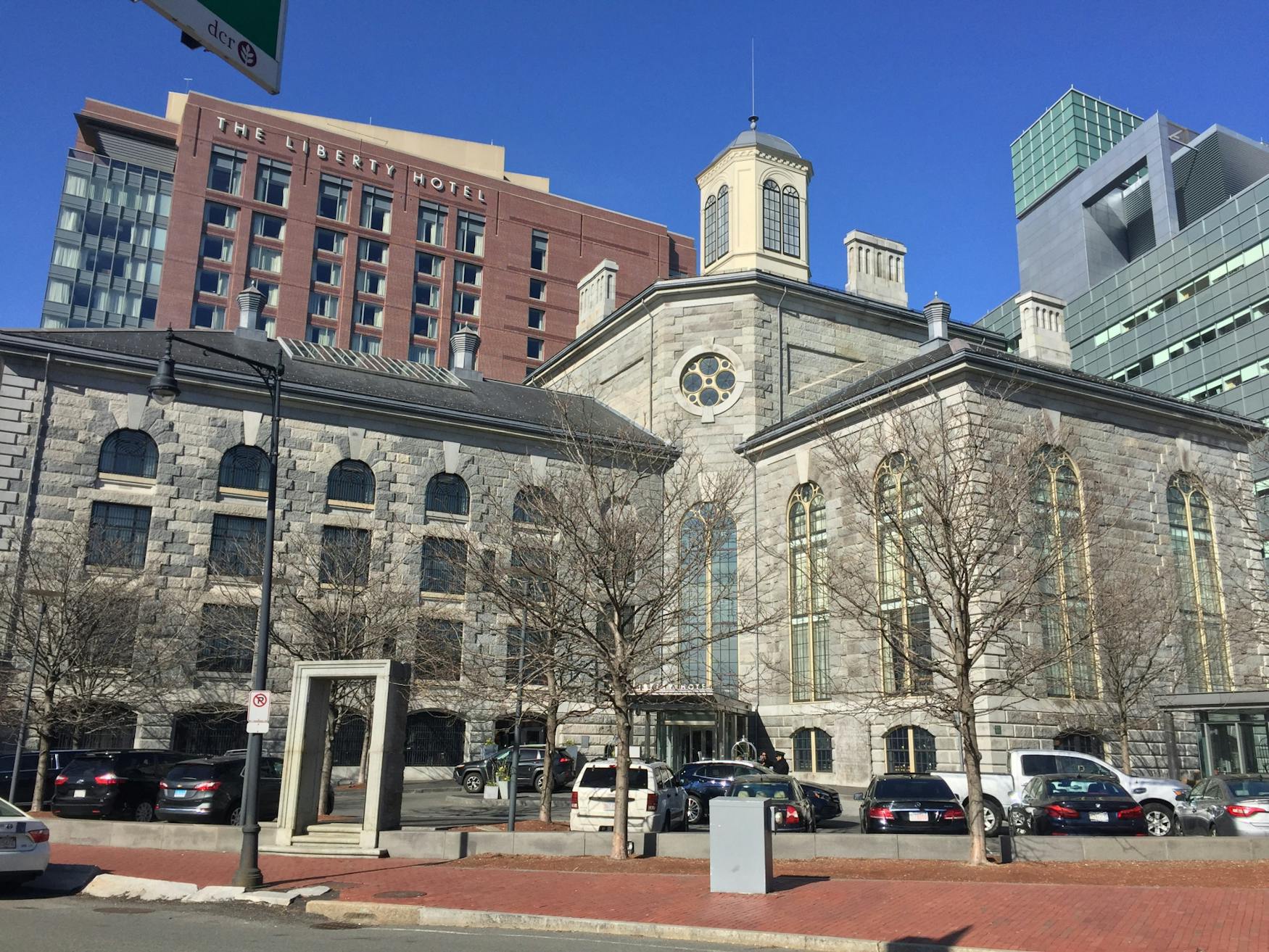Teaching Second Chances
Brandeis Prof. David Sherman (ENG) talked about his experiences teaching English literature to incarcerated individuals in Boston and his mission to give everybody a second chance.
In a small classroom on a Thursday evening, a group of students gathers around a table to discuss James Baldwin’s “Sonny’s Blues.” Among them are probation officers, district court judges and people rebuilding their lives after incarceration. They are part of a class called “Changing Lives Through Literature” taught by Prof. Sherman (ENG). It’s one of several programs under the Brandeis Educational Justice Initiative (BEJI), where faculty and graduate students bring higher education beyond campus walls and into correctional and reentry spaces across the Boston area.
“For about six years now, faculty and graduate students have been organizing the Brandeis Educational Justice Initiative,” Sherman said in a Nov. 3 interview with The Justice.. “Our goal is to provide educational opportunities to criminal justice-impacted people — people who’ve been convicted and are serving time or probation and getting back on their feet.”
The initiative offers a range of courses, from literature and writing to technology and health workshops. The initiative partners with the Partakers Empowerment Program, a nonprofit that supports formerly incarcerated people with work, housing and reintegration. With them, faculty and volunteers at the University teach “core literacy” training workshops on technology, health and many other life skills such as financial literacy. These classes are not centered around traditional reading or writing instruction, but rather highlight practical and emotional skills for navigating life after incarceration.
“Financial literacy, technology training, even health literacy — these are things many people haven’t had access to,” said Sherman. He then talked about his own class, “Changing Lives Through Literature.” In this course, participants on probation spend several months reading and discussing short stories and poems with probation officers and judges who join them in the classroom. Everyone sits together, reading the same texts and listening to one another. Stories they’ve discussed include “Sonny’s Blues,” a story about two brothers, art and redemption.
“They come in having read the material,” Sherman explained. “We have these amazing conversations. Beyond one or two short stories or poems, they also do brief journal writings about the readings as well. The students are thoughtful and they bring all their amazing experiences to connect with and the conversations that happen are incredible. I’ve taught it many times but each group brings out something new.”
Beyond literature, BEJI sometimes also runs creative writing or public speaking workshops at the Suffolk County House of Correction in South Boston. Some sessions focus on exploring the possibility of college for students nearing release. “What we can contribute are college-level classes,” Sherman said. “There are always other staff offering life-skills training but we focus on academic learning, giving people a space to use their intellect and creativity.”
For many students, these classes are a break from monotony. “It’s not mandatory at all. The routines inside can be so boring, so it’s a chance to have real conversations, to connect with people from different parts of the prison. Sometimes it’s just a space to say, ‘I’m writing a book,’ which is my favorite sentence to hear.”
When asked if teaching in correctional settings feels uncomfortable, Sherman didn’t hesitate. “That’s a common question,” he said. “But no, not at all. The students I meet are warm, respectful and deeply engaged. The men’s classes tend to be very polite and guarded and the women’s classes are often livelier and full of humor. But across the board, everyone’s motivated. They know if there’s conflict they’ll lose the opportunity and there’s too much at stake.”
Brandeis undergraduates have also joined these classes as peers. “Last year, three undergrads came with me,” he recalled. “They didn’t get course credit but they received a stipend. They did the readings and worked with the incarcerated students to help with research — things they can’t look up themselves because there’s no internet access. It was a cool connection. People were friendly, curious, and it felt like a real exchange.”
That spirit of exchange extends beyond the prison walls. On campus, the professor teaches “Literature in the Age of Mass Incarceration,” a course that explores prison writing and the cultural consequences of mass incarceration in the United States. “It’s not just for English majors,” he added. “There are students from Sociology and Legal Studies too. I like when those departments collaborate — it broadens how we think about justice.”
When talking about his work, one theme returns again and again: second chances. “Almost everybody who’s incarcerated is going to get out one day,” he said. “We want people to come out with hope, training and social connection. That’s better for everyone. I had to commit early on to the principle of second chances, and I think our society is better off when there’s space for that.” For him, the Brandeis Educational Justice Initiative is more than a teaching project, it’s a moral responsibility. “Universities like Brandeis have an obligation to offer opportunities beyond campus,” he said. “If there’s anything we can do to give folks a second chance, we have to do it. We’re lucky to be able to.”
In classrooms where judges and probationers share a table, where undergraduates sit beside incarcerated men and women rediscovering learning, the Brandeis Educational Justice Initiative transforms education into empathy and justice into understanding.




Please note All comments are eligible for publication in The Justice.